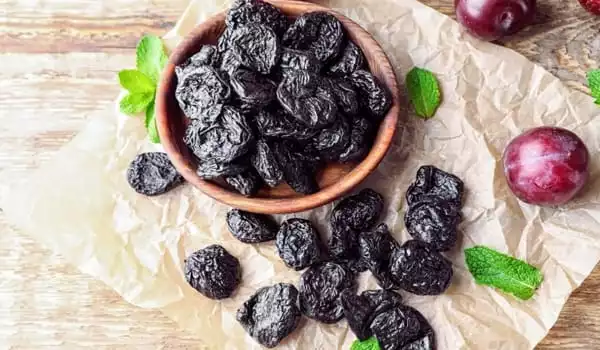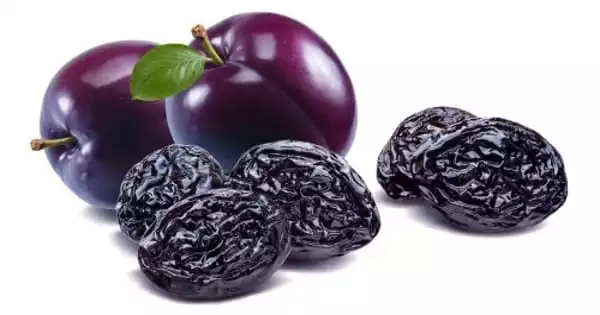Osteoporosis is a disease that weakens bones to the point where they shatter easily, most commonly in the hip, backbone (spine), and wrist. Osteoporosis is known as a “silent illness” since you may not detect any changes until a bone breaks. Your bones, on the other hand, had been losing strength for many years.
Researchers discovered that prunes can help prevent or postpone bone loss in postmenopausal women, potentially due to their capacity to lower inflammation and oxidative stress, both of which contribute to bone loss. Prunes are widely recognized for their digestive benefits, but new Penn State research reveals they may also be beneficial to bone health.
According to a review of studies, prunes can help prevent or postpone bone loss in postmenopausal women, probably due to their capacity to lower inflammation and oxidative stress, both of which contribute to bone loss.
“In postmenopausal women, reduced estrogen levels might cause an increase in oxidative stress and inflammation, increasing the risk of bone weakening and fracture,” said Connie Rogers, associate professor of nutritional sciences and physiology. “Adding prunes to your diet may help protect your bones by slowing or reversing this process.”
The review was recently published in the journal Advances in Nutrition.
In postmenopausal women, reduced estrogen levels might cause an increase in oxidative stress and inflammation, increasing the risk of bone weakening and fracture. Adding prunes to your diet may help protect your bones by slowing or reversing this process.
Connie Rogers
Osteoporosis is a disease that weakens bones, increasing their susceptibility to fracture. It happens because people lose bone faster than they make it as they age. Anyone can get osteoporosis; however, due to the decrease of estrogen at menopause, older women are more vulnerable to the illness. Estrogen aids in the prevention of bone loss.
Osteoporosis is a condition in which bones become weak or brittle. It can affect anyone at any age, although it is most frequent in women over the age of 50, according to the experts. The issue affects over 200 million women globally and results in about nine million fractures each year.
While medications exist to treat osteoporosis, the researchers said there is a growing interest for ways to treat the condition with nutrition.
“Fruits and vegetables high in bioactive substances such as phenolic acid, flavonoids, and carotenoids can potentially help protect against osteoporosis,” said Mary Jane De Souza, professor of kinesiology and physiology, “with prunes in particular attracting attention in prior study.”

According to the researchers, bones are maintained throughout adulthood by processes that constantly create new bone cells while eliminating old ones. However, at the age of 40, the breakdown of old cells begins to outstrip the production of new ones. This can be caused by a variety of circumstances, including inflammation and oxidative stress, which occurs when free radicals and antioxidants in the body are out of balance.
Prunes, however, have many nutritional benefits such as minerals, vitamin K, phenolic compounds and dietary fiber — all which may be able to help counter some of these effects.
The researchers examined data from 16 preclinical investigations in rodent models, ten preclinical studies, and two clinical trials for their review. Across the studies, the researchers discovered evidence that eating prunes reduced inflammation and oxidative stress while also promoting bone health.
For example, clinical investigations discovered that consuming 100 grams of prunes (approximately 10 prunes) each day for a year enhanced bone mineral density in the forearm and lower spine and lowered indications of bone turnover. Furthermore, eating 50 or 100 grams of prunes per day for six months prevented loss of total bone mineral density and lowered TRAP-5b (a marker of bone resorption) compared to women who did not eat prunes.
“Taken together, evidence from in vitro, preclinical research, and limited clinical investigations suggest prunes may assist to decrease bone loss,” said Rogers. “This could be because of altered bone turnover, as well as by reducing inflammation and decreasing oxidative stress indicators.”
According to the researchers, one possible reason for the effects is that prunes cause a change in the gut flora, which then reduces inflammation in the colon. This may reduce levels of pro-inflammatory cytokines and oxidative damage indicators. In the future, the researchers hope to report on the impact of 12 months of prune consumption on bone results, inflammatory pathways, and gut microbiota in a randomized controlled experiment directed by De Souza.













